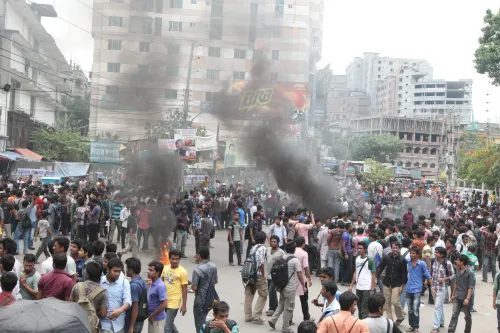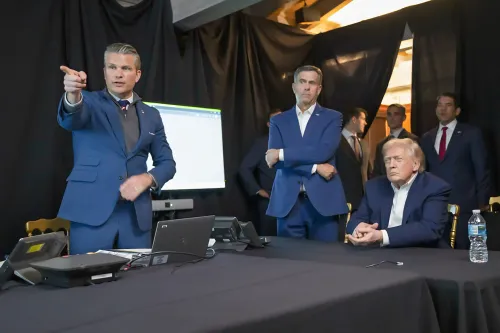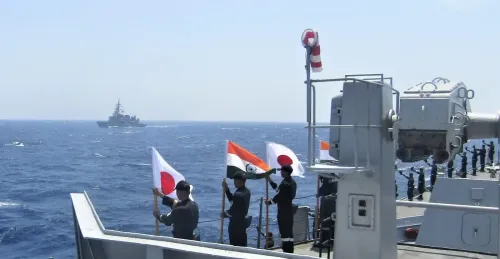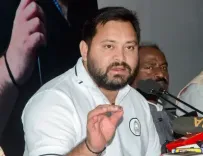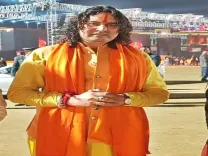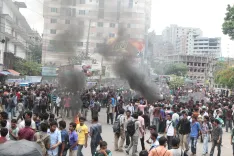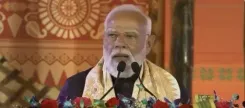South Korea: Court Session Concludes on Arrest Warrant for Yoon After Five Hours
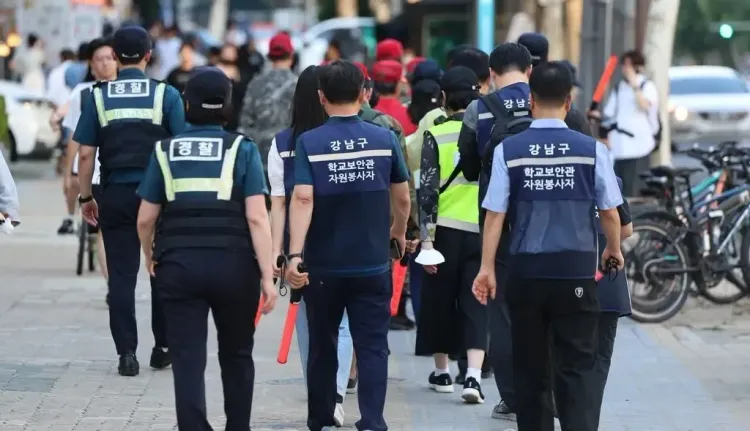
Synopsis
Key Takeaways
- Yoon Suk Yeol's court hearing lasted five hours.
- The court will decide on the arrest warrant by late Saturday or early Sunday.
- Yoon's lawyers argue the martial law was a necessary governance action.
- He faces charges of insurrection and abuse of power.
- If arrested, Yoon will be the first sitting president to be formally detained.
Seoul, Jan 18 (NationPress) A hearing at the South Korean Court regarding the potential issuance of an arrest warrant for impeached President Yoon Suk Yeol over his brief declaration of martial law concluded on Saturday after a duration of five hours.
The session at the Seoul Western District Court took place from 2 p.m. to 6:50 p.m., with Yoon present. Following the proceedings, he returned to the detention facility where he has been held since Wednesday, awaiting the court's ruling.
According to his attorney, Yun Gap-geun, "The president thoroughly detailed and addressed the facts, evidence, and legal matters." He added, "We will patiently await the court's verdict."
The court is anticipated to either approve or deny the request for his formal arrest late on Saturday or early Sunday.
Earlier, one of Yoon's legal representatives, Seok Dong-hyeon, stated that prosecutors from the Corruption Investigation Office for High-ranking Officials (CIO) presented their case for arrest, to which the defense responded with PowerPoint presentations outlining their counterarguments.
Yoon, dressed in formal attire, addressed the court for 40 minutes, concluding with a five-minute statement before the session's end.
The impeached president has been detained since his arrest at his residence on Wednesday, facing charges of orchestrating an insurrection and abusing his power, marking him as the first sitting South Korean president to be taken into custody.
Yoon was transported to the court from a detention center located in Uiwang, approximately 20 kilometers south of Seoul, in a blue vehicle under police and Presidential Security Service escort, as reported by Yonhap news agency.
The convoy avoided the designated media photo area and entered the court directly, while thousands of supporters gathered nearby, waving South Korean and US flags, chanting Yoon's name in a show of solidarity.
Yoon decided to be present at the hearing to clarify the validity of the martial law declaration and to mend his damaged reputation, as indicated by his lawyer Yun in a message to reporters.
Since his detention, Yoon has declined to participate in questioning related to his martial law declaration. The announcement made on December 3 took the nation by surprise, leading to South Korea's most significant political crisis in decades, though the martial law was lifted just hours later following a vote by lawmakers.
His defense team argues that the martial law declaration constituted a governance action and is not subject to judicial review as it was enacted to address a national crisis triggered by the opposition's impeachment of Cabinet members, legislative deadlock, and unilateral budget cuts.
Yoon's presidential powers were suspended following the opposition-dominated assembly's impeachment vote on December 14.
On Wednesday, Yoon's legal team appealed to the Seoul Central District Court to assess the legality of the detention warrant issued by the Western District Court.
However, the central court rejected the appeal the next day, keeping him in custody.
Despite this ruling, Yoon's legal team is expected to continue arguing that the CIO lacks the legal authority to investigate insurrection allegations and that the Western Court does not possess proper jurisdiction over the martial law matter.
If the court grants the warrant, Yoon will become the first sitting president in South Korea's constitutional history to face formal arrest.
A formal arrest would enable investigators to extend his detention to 20 days, during which the case would be handed over to prosecutors for potential indictment.
If the warrant is denied, the embattled president will be released and return to his residence, strengthening his claims that the ongoing investigations into his martial law declaration and impeachment are baseless.
Meanwhile, the Constitutional Court is deliberating on whether to uphold the parliament's impeachment decision, which would remove Yoon from office, or to reinstate him.


